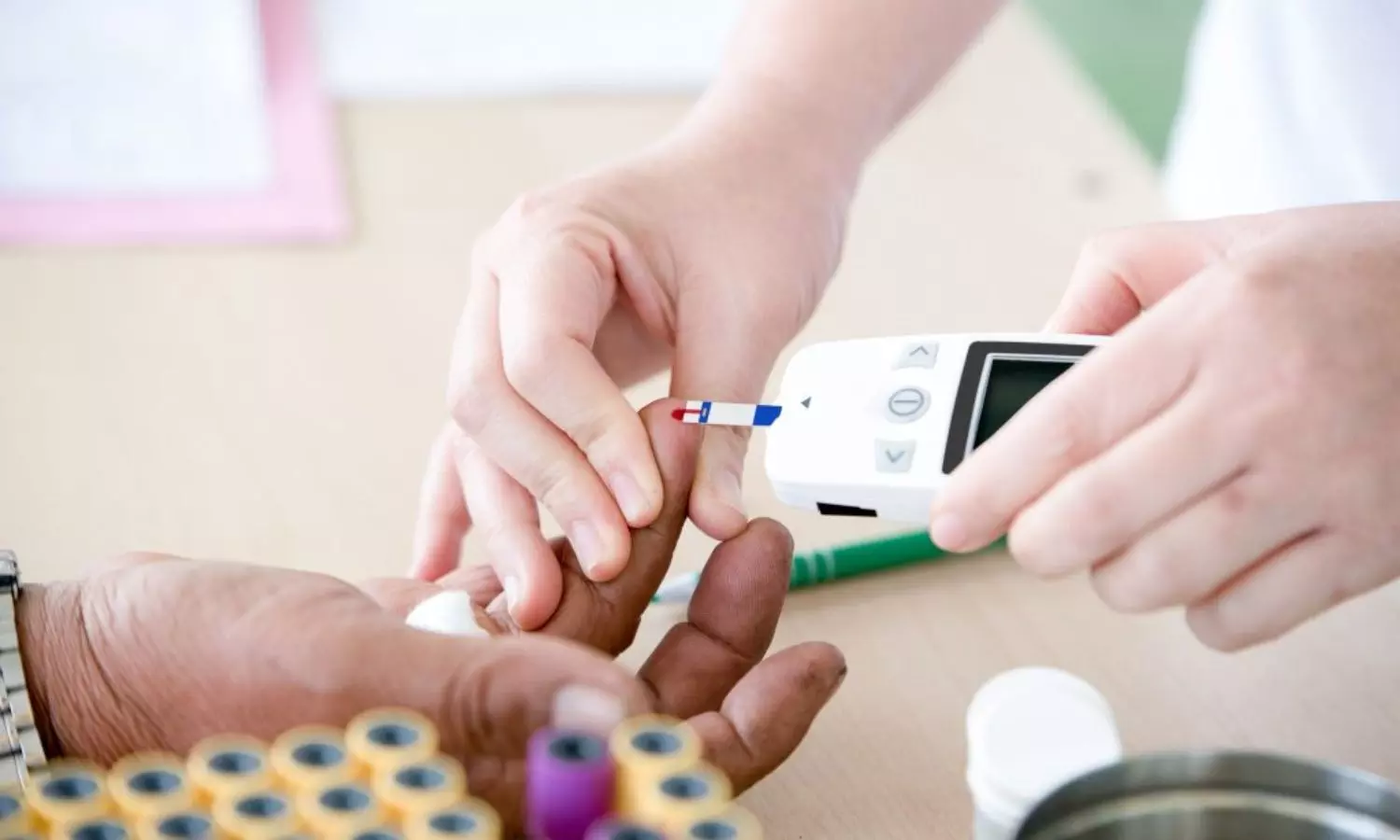- Home
- Medical news & Guidelines
- Anesthesiology
- Cardiology and CTVS
- Critical Care
- Dentistry
- Dermatology
- Diabetes and Endocrinology
- ENT
- Gastroenterology
- Medicine
- Nephrology
- Neurology
- Obstretics-Gynaecology
- Oncology
- Ophthalmology
- Orthopaedics
- Pediatrics-Neonatology
- Psychiatry
- Pulmonology
- Radiology
- Surgery
- Urology
- Laboratory Medicine
- Diet
- Nursing
- Paramedical
- Physiotherapy
- Health news
- AYUSH
- State News
- Andaman and Nicobar Islands
- Andhra Pradesh
- Arunachal Pradesh
- Assam
- Bihar
- Chandigarh
- Chattisgarh
- Dadra and Nagar Haveli
- Daman and Diu
- Delhi
- Goa
- Gujarat
- Haryana
- Himachal Pradesh
- Jammu & Kashmir
- Jharkhand
- Karnataka
- Kerala
- Ladakh
- Lakshadweep
- Madhya Pradesh
- Maharashtra
- Manipur
- Meghalaya
- Mizoram
- Nagaland
- Odisha
- Puducherry
- Punjab
- Rajasthan
- Sikkim
- Tamil Nadu
- Telangana
- Tripura
- Uttar Pradesh
- Uttrakhand
- West Bengal
- Medical Education
- Industry
Elevated preclinical blood glucose may increase hospitalization and associated mortality risk of patients

Germany: A single-centre retrospective cohort study published in the Journal of the American College of Emergency Physicians Open has shed light on the association of preclinical blood glucose with hospitalization rate and in-hospital mortality.
The researchers revealed that elevated prehospital blood glucose (PBG) ≥140 mg/dL was associated with a higher mortality risk, longer stay, and higher hospitalization risk. They may, therefore, be useful in risk assessment scores.
Critical illness is often accompanied by increased blood glucose which is correlated with increased mortality and morbidity. Prehospital blood glucose levels might be an easy-to-perform and useful tool for risk assessment in emergency medicine. Simon Kloock, Department of Internal Medicine Division of Endocrinology and Diabetes University Hospital University of Würzburg Würzburg Germany, and colleagues aimed to analyze the association of prehospital glucose measurements with in-hospital mortality and hospitalization rate.
For this purpose, the researchers analyzed records of 970 patients admitted to a university hospital by an emergency physician. A comparison was drawn between patients with a PBG ≥140 mg/dL (G1, n = 394, equal to 7.8 mmol/L) and patients with a PBG <140 mg/dL (G2, n = 576). Multivariable logistic regression models were used to correct for prediagnosed diabetes, age, and sex. Five hundred thirty-four patients (55%) were hospitalized.
The study revealed the following findings:
- In comparison to normoglycemic patients, hyperglycemic patients were more likely to be hospitalized with an adjusted odds ratio (OR) of 1.48, more likely to die in the hospital with an adjusted OR of 1.84, and more likely to be admitted to the intensive care unit (ICU) with an adjusted OR of 1.74.
- Hospitalized hyperglycemic patients had a median length of stay of 6.0 days compared to 3.0 days in the normoglycemic group.
- In the subgroup analysis of cases without known diabetes, patients with PBG ≥140 mg/dL were more likely to be hospitalized with an adjusted OR of 1.49 and more likely to be admitted to ICU/intermediate care with an adjusted OR of 1.80, compared to normoglycemic patients.
"Prehospital point-of-care testing (POCT) of glucose might indicate stress hyperglycemia and show an association with the patient's in-hospital mortality rate and admission rate," the researchers wrote. "Therefore, it might contribute to the risk assessment of a patient."
"As elevated prehospital blood glucose might be more relevant in specific diseases, there is a need for further studies to identify specific diagnoses with high relevance of elevated PBG," they concluded, adding that an elevated PBG might contribute to future scoring systems.
Reference:
Kloock, S., Skudelny, D., Kranke, P., Güder, G., Weismann, D., Fassnacht, M., Ziegler, C., & Dischinger, U. (2024). Association of preclinical blood glucose with hospitalization rate and in-hospital mortality: A single-center retrospective cohort study. Journal of the American College of Emergency Physicians Open, 5(1), e13091. https://doi.org/10.1002/emp2.13091
MSc. Biotechnology
Medha Baranwal joined Medical Dialogues as an Editor in 2018 for Speciality Medical Dialogues. She covers several medical specialties including Cardiac Sciences, Dentistry, Diabetes and Endo, Diagnostics, ENT, Gastroenterology, Neurosciences, and Radiology. She has completed her Bachelors in Biomedical Sciences from DU and then pursued Masters in Biotechnology from Amity University. She has a working experience of 5 years in the field of medical research writing, scientific writing, content writing, and content management. She can be contacted at editorial@medicaldialogues.in. Contact no. 011-43720751


